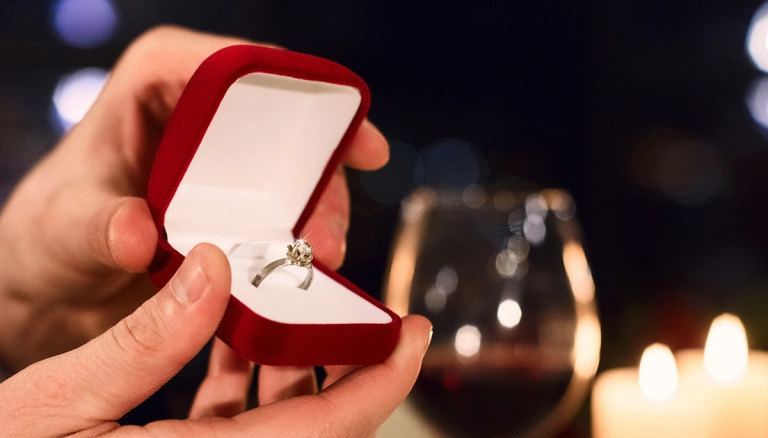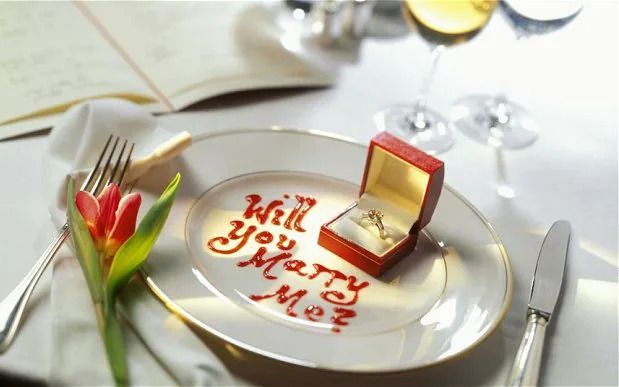Should I Propose Before, During, or After Dinner?Should I Propose Before, During, or After Dinner?
The act of proposing marriage is a significant milestone in a relationship, and the timing of this momentous event can greatly impact its success and emotional impact. One common question that arises is whether to propose before, during, or after a romantic dinner. In this article, we will explore the various factors to consider when determining the ideal timing for a proposal. By understanding the dynamics at play, individuals can make an informed decision that aligns with their relationship dynamics, preferences, and overall vision for their proposal.
Reflecting on Relationship Dynamics:
Before deciding on the timing of a proposal, it is crucial to reflect on the dynamics and unique qualities of your relationship. Consider factors such as the level of emotional intimacy, mutual understanding, and shared vision for the future. Understanding your partner’s expectations and preferences regarding proposals can also provide valuable insight into the ideal timing.
Personalities and Comfort Zones:
Another essential aspect to consider is the personalities and comfort zones of both individuals in the relationship. Some people may prefer private and intimate moments, while others thrive in more public settings. It is crucial to align the proposal timing with the comfort zones and preferences of both partners to ensure a memorable and meaningful experience.
Creating a Memorable Atmosphere:
The ambiance and atmosphere surrounding the proposal greatly contribute to its overall impact. A romantic dinner can set the stage for a heartfelt and intimate proposal. Consider factors such as the venue, lighting, and music that will enhance the mood and create a memorable backdrop for this special moment. Additionally, personal touches that reflect your shared experiences and memories can add a sentimental touch to the proposal.
Timing Within the Evening:
Timing plays a crucial role in creating the desired emotional impact during a proposal. Each timing option – before, during, or after dinner – presents its own unique considerations:
Before Dinner:
Proposing before dinner offers a sense of anticipation and excitement throughout the meal. This timing allows you and your partner to savor the celebratory atmosphere without the proposal itself overshadowing the dining experience. It can create a moment of surprise and set a positive tone for the evening, allowing you both to relax and enjoy each other’s company while relishing the joyous news. This can be a very lovely way in celebrating your new engagement.

Pros:
- Element of surprise: Proposing before dinner catches your partner off guard and makes the moment even more special.
- Enhanced intimacy: Starting the evening with a proposal sets the stage for an intimate and romantic dinner, creating a shared sense of excitement and anticipation.
Cons:
- Distraction during dinner: Some individuals may find it challenging to focus on the meal and engage in meaningful conversation while processing the proposal.
- Potential for anxiety: If your partner is prone to being self-conscious or uncomfortable with public displays of emotion, proposing before dinner may add unnecessary pressure.
During Dinner:
A proposal during dinner can be a heartfelt and memorable experience, creating an intimate moment between you and your partner amidst a romantic ambiance. It allows you to combine the joy of the proposal with the enjoyment of a shared meal, enhancing the significance of the occasion.

Pros:
- Romantic atmosphere: The ambiance of a candlelit dinner or a favorite restaurant adds a touch of romance and sets the stage for an unforgettable proposal.
- Memorable experience: The proposal becomes a part of your shared dining experience, creating a lasting memory that you can cherish together.
Cons:
- Lack of privacy: Depending on the restaurant or dining location, proposing during dinner may result in limited privacy, potentially making your partner feel self-conscious or overwhelmed by onlookers.
- Interruption of the meal: The proposal may temporarily shift the focus away from the meal, disrupting the dining experience and potentially affecting the overall enjoyment of the evening.
After Dinner:
Choosing to propose after dinner provides an opportunity to create a relaxed and intimate moment, away from any distractions. This approach allows you to fully savor the meal and enjoy each other’s company before transitioning into the next chapter of your lives together.

Pros:
- Uninterrupted dining experience: Proposing after dinner ensures that you can fully engage in the meal and enjoy uninterrupted conversation and connection.
- Private and intimate setting: By proposing in a secluded or meaningful location after dinner, you can create an intimate and personal moment that focuses solely on your commitment to each other.
Cons:
- Potential predictability: If your partner has been anticipating a proposal, waiting until after dinner may make the timing more predictable and may reduce the element of surprise.
- Delayed celebration: Proposing after dinner means postponing the immediate celebration of your engagement, which may be disappointing for some couples who prefer to revel in the excitement right away.
Communication and Alignment:
Regardless of the chosen timing, effective communication and alignment are crucial. Discussing your intentions and expectations with your partner beforehand can ensure that both parties are on the same page. This open dialogue will help avoid misunderstandings and ensure that the timing of the proposal aligns with the desires and expectations of both individuals.
Flexibility and Adaptability:
While planning the perfect timing is important, it is equally vital to remain flexible and adaptable. Unexpected circumstances may arise, and the initial plan may need to be adjusted. Being able to embrace spontaneity and go with the flow will ultimately contribute to a more memorable and enjoyable proposal experience.
Capturing the Element of Surprise:
The element of surprise can add an extra layer of excitement and emotion to a proposal. Consider how each timing option – before, during, or after dinner – can contribute to the surprise factor. Proposing before dinner allows for an unexpected declaration of love, while proposing during or after dinner can catch your partner off guard in a romantic and unexpected moment. Assess your partner’s personality and preferences to determine which timing option will deliver the desired surprise element.
Account for Personal Preferences:
Understanding your partner’s personal preferences and desires is crucial when deciding on the timing of a proposal. Some individuals may have always envisioned a grand gesture during a romantic dinner, while others might prefer a more intimate and private moment. Taking your partner’s preferences into account demonstrates thoughtfulness and consideration, ensuring that the proposal timing aligns with their vision and desires.
Cultural and Symbolic Considerations:
Cultural and symbolic factors can also influence the timing of a proposal. In some cultures, certain times or occasions hold significant meaning for engagements. For example, proposing during a special holiday or anniversary may carry added symbolism and sentimental value. Taking into account these cultural and symbolic considerations can enhance the meaningfulness of the proposal experience.
Balancing Intimacy and Publicity:
Finding the right balance between intimacy and publicity is essential when considering the timing of a proposal. Some individuals prefer a private and intimate moment to share their love and commitment, while others enjoy the idea of a public declaration surrounded by friends and family. Carefully weigh the desires and comfort levels of both partners to create a proposal setting that strikes the perfect balance and fosters a memorable and cherished experience.
Considering Practical Logistics:
In addition to the emotional and symbolic aspects, practical logistics should also be taken into consideration when deciding on the timing of a proposal. Think about factors such as the availability of the desired venue, reservations for dinner, and any logistical arrangements that may need to be made. Planning ahead and ensuring a seamless flow of events can contribute to a stress-free and well-executed proposal.
Personalizing the Experience:
Personalization is key to creating a memorable and meaningful proposal. Consider your partner’s interests, hobbies, or favorite activities when deciding on the timing. For example, if your partner loves outdoor adventures, a proposal during a scenic hike or picnic might be more fitting. By incorporating personal elements into the timing, you can create a proposal experience that is tailored to your partner’s preferences and passions.
Trusting Your Instincts:
While it is helpful to consider various factors and advice, ultimately, trusting your instincts is crucial. You know your partner and your relationship best. Pay attention to your intuition and what feels right for both of you. Trusting your instincts will help ensure that the timing of the proposal aligns authentically with your relationship and sets the stage for a truly heartfelt and genuine moment.
Celebrating the Journey:
Ultimately, a proposal is a celebration of the journey you and your partner have embarked upon together. While the timing is important, it is just one aspect of a much larger picture. Focus on the love, growth, and shared experiences that have brought you to this moment. Regardless of when, where, or how you propose, it is the depth of your connection and the commitment to a future together that will make the proposal truly special.
Conclusion
Deciding on the timing of a proposal – whether before, during, or after dinner – involves a thoughtful and balanced approach that takes into account emotional dynamics, personal preferences, surprise elements, practical logistics, and personalization. By considering these factors, communicating openly with your partner, and trusting your instincts, you can create a proposal experience that captures the essence of your relationship and sets the stage for a lifetime of love and happiness. Remember, it is the depth of your love and the sincerity of your commitment that will make the proposal truly unforgettable, regardless of the specific timing chosen.…